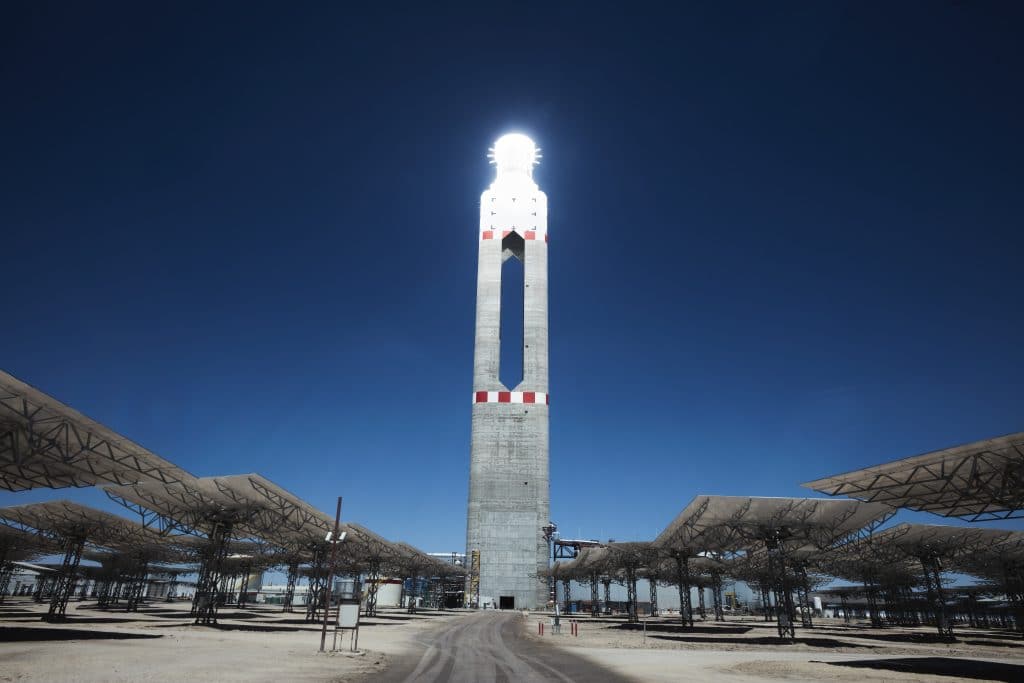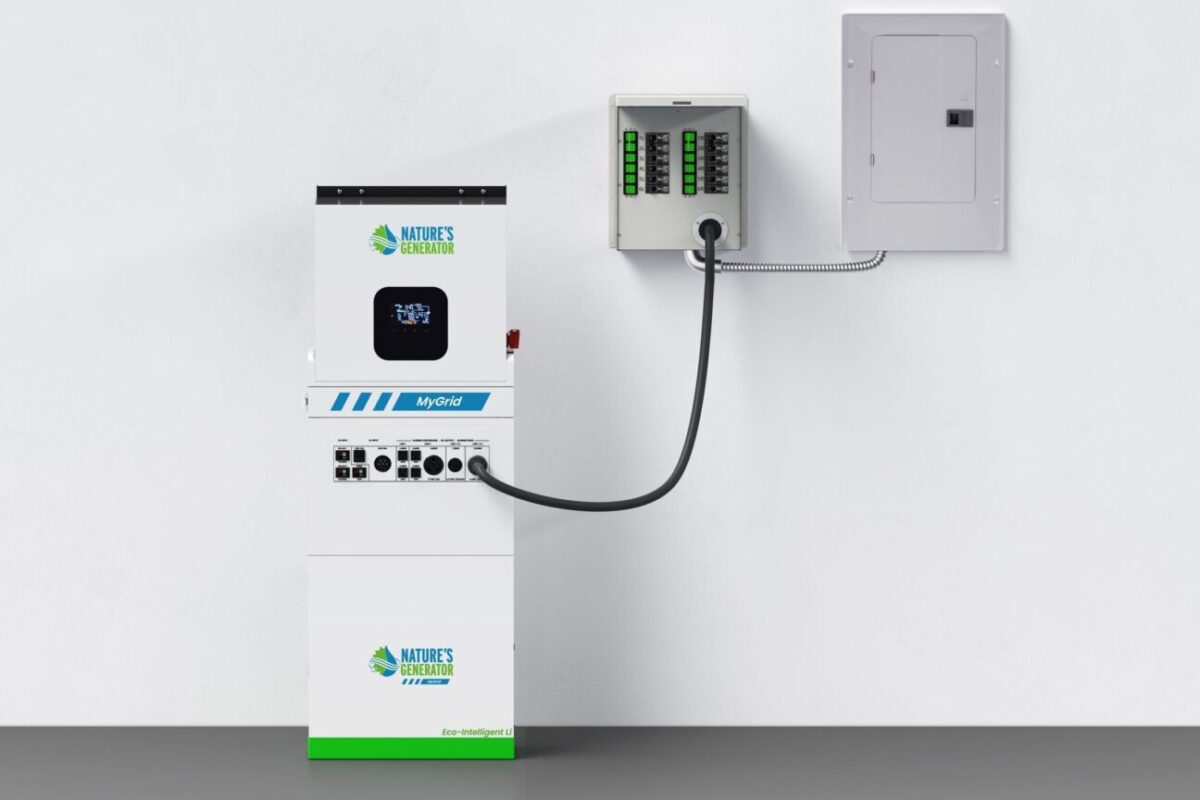From pv magazine LatAm
A consortium led by Spanish renewable-energy companies Abengoa and Acciona connected a concentrated solar power (CSP) unit to Chile's grid network on Sunday. The project is owned by U.S.-based EIG Global Energy Partners.
The system uses 10,600 mirrors (heliostats), each with a surface area of 140 m2, to reflect sunlight by concentrating the heat on a receiver at the top of a 250 m tower. Molten salt circulates through the receiver for 56 days, at a temperature of 560 C in the case of hot salt tanks, and 290 C in the case of cold salt tanks. It is stored in large ponds so it can be used to generate electricity via steam turbines.
The molten salt can conserve energy that is captured throughout the day for up to 17.5 extra hours, thanks to thermal storage in tanks. The project developers said that in the months ahead, the CSP plant will gradually deliver energy in stages to the grid.
“The first phase begins with synchronization,” the consortium said. “Then we will go to the second phase, which is the calibration of the operation, where we will be making a detailed adjustment of the different systems and we will carry out the final tests of the plant.”
The project, which obtained partial financing from a program under the European Union and the German Development Bank, is being built at a cost of €1.41 billion ($1.7 billion). It will be the first solar plant in Latin America to combine CSP and PV technologies.
This content is protected by copyright and may not be reused. If you want to cooperate with us and would like to reuse some of our content, please contact: editors@pv-magazine.com.



By submitting this form you agree to pv magazine using your data for the purposes of publishing your comment.
Your personal data will only be disclosed or otherwise transmitted to third parties for the purposes of spam filtering or if this is necessary for technical maintenance of the website. Any other transfer to third parties will not take place unless this is justified on the basis of applicable data protection regulations or if pv magazine is legally obliged to do so.
You may revoke this consent at any time with effect for the future, in which case your personal data will be deleted immediately. Otherwise, your data will be deleted if pv magazine has processed your request or the purpose of data storage is fulfilled.
Further information on data privacy can be found in our Data Protection Policy.